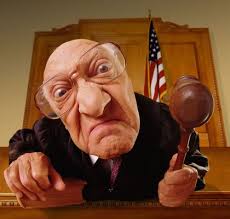Time to Decide
Each morning as I stretch on my yoga mat I watch Morning Joe on MSNBC. Today, I am struck by the integrity of a guest commentator. “I don’t have all the facts” says the former federal prosecutor who is not willing to pass judgment on a political matter without hearing from all the parties. The show’s host pressed this guest to make a determination about guilt or innocence but the host is met by a second refusal. While talking heads and bar room brainiacs may be quick to take sides, the television exchange I am watching is a model of judiciousness and spirituality.
Take a look at the opening verses of Deuteronomy as Moses revisits the travels of the Hebrews in the wilderness. First stop is Mount Horeb, also known as Sinai. What happened at Sinai? The text tells us that first God helped Moses to appoint Judges. Those Judges were impartial arbiters regarding all disputes. “I charged your magistrates at that time as follows, “Hear out your fellow men, and decide justly between any man and a fellow Israelite or a stranger. You shall not be partial in judgment: hear out low and high alike. Fear no man, for judgment is God’s. And any matter that is too difficult for you, you shall bring to me and I will hear it.”” Deut 1:16 -17.
In order to avoid bias, sufficient facts are vital. The unbiased offer of judgment is a juridical ideal and a spiritual requisite. The juridical ideal is to obtain information from both sides of an issue before offering a judgment. The spiritual requisite is that judgment is a Godly enterprise. The text warns us that we might be making a leap over faith when we judge without hearing from both “low and high alike.”
Torah doesn’t permit bias when we offer a judgment. Biased judgment impedes our ability to relate to other people. Whether in business, politics or nonprofit organizations, we are often pressed to pick sides like a schoolyard kick ball game. As a result, communities may become polarized. Emotions get whipped up with incomplete and highly charged information; be it from news anchors, twitter feeds or Facebook friends.
Torah directs us to avoid partisanship to create a more just society.. We might begin with the way we treat each other in our spiritual communities – in synagogues, and non-profit organizations, in educational institutions and in advocacy groups. Failing to give due consideration to both low and high, we might not treat other human beings with the due consideration that God demands of us. Judgment is a spiritual endeavor, not merely a legal matter. And that is why courtrooms are often adorned with the words “in God we trust.”
When next you are presented with a matter of controversy or consternation, ask questions and pursue the facts before taking sides or offering a judgment. The process of deciding is a holy matter and spiritual practice. And when we fail to judge evenhandedly, we fail to allow God to preside.
R’ Evan J. Krame






 Evan J. Krame was ordained as a rabbi by the
Evan J. Krame was ordained as a rabbi by the